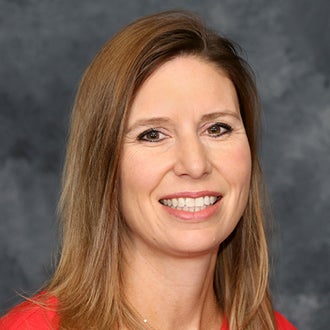What Trustees Need To Know About Electronic Communications
Technology can facilitate a board member’s work with the school district, but because board members are elected officials, the law can place limitations or legal obligations on their technology use. This article provides an overview of common legal issues that impact board members' use of electronic communications to help them take advantage of benefits while avoiding legal risks.
Texas Open Meeting Act Requirements
The Texas Open Meetings Act (OMA) requires meetings of governmental bodies, including school boards, to be open to the public except for expressly authorized closed sessions, and with advanced notice. Tex. Gov’t Code §§ 551.001(3)(E), .002, .041. The term meeting is specifically defined by OMA. See Tex. Gov’t Code §§ 551.001(4) (defining meeting), .001(2) (defining deliberation). Because a meeting of the board can involve either a verbal or a written exchange, electronic communications by board members present the risk of violating OMA, even if a violation is unintentional.
Communicating with Other Board Members Electronically
Questions often arise about whether a board member may email, text message, instant message (IM), or otherwise send electronic communications to the rest of the board to discuss school business outside of public meetings. Electronic communications, including emails, texts, IMs, and online internet posts, are generally not exceptions to OMA. An illegal meeting can occur if a quorum deliberates school business outside of a posted meeting, even if the quorum does not meet at one time or place or in person. Hitt v. Mabry, 687 S.W.2d 791 (Tex. App.—San Antonio 1985, no writ); Tex. Att’y Gen. Op. No. GA-0896 (2011); Tex. Att’y Gen. LO-95-055 (1995).
What Constitutes a Meeting
Even if a board member sends a message to the rest of the board and no one replies, this can still be problematic. Both a court and the attorney general have defined deliberation to include a one-way communication spoken by one member of a governmental body and heard by the rest of a quorum. See, e.g., Bexar Medina Atascosa Water Dist. v. Bexar Medina Atascosa Landowners’ Ass’n, 2 S.W.3d 459 (Tex. App.—San Antonio 1999, pet. denied) and Tex. Att’y Gen. Op. No. JC-0203 (2000) (both holding that a governmental body failed to comply with OMA when a quorum of the body was present at a public meeting of another entity and one member of governmental body discussed public business in front of the rest of the quorum). In other words, if a quorum of a school board is together and one member of the quorum talks about school business, a meeting has occurred, even if none of the other trustees respond. A back-and-forth discussion is not required for a deliberation under OMA.
What Constitutes a Walking Quorum?
A single board member contacting less than a quorum of the board through electronic communications also creates a legal risk. A single message sent by one board member to less than a quorum of the board does not technically violate OMA; however, a string of electronic messages may constitute a walking quorum. If the board member knew at the time of communicating that the exchange would involve a quorum and deliberation, as defined by OMA, the member may risk an offense. See Tex. Gov’t Code § 551.143 (defining Prohibited Series of Communications offense). There is no special exception for communications by board presidents.
How to Legally Stay Informed Between Board Meetings
Board members often ask how they can lawfully keep each other informed between board meetings. They may find it frustrating that their good faith efforts to keep each other in the loop could be problematic under OMA, but members should keep in mind that OMA carries both civil and criminal penalties. Additionally, the attorney general believes the commissioner of education may penalize boards for violating the Texas Education Code, which requires school boards to make open meetings records available to the public. Tex. Att’y Gen. Op. No. KP-0254 (2019); see also Tex. Educ. Code § 11.0621 (requiring the minutes or tape recording of an open meeting to be accessible to the public in accordance with OMA).
Responding to Community Concerns Outside of Board Meetings
A board member should handle community concerns presented to them outside of public meetings with care. When concerns are sent to a member via email, the solution that presents the least legal risk is for the member simply to forward the email to the administration — not the rest of the board. Or, the member may request an agenda item to discuss the concern with the rest of the board during a properly posted meeting. If that solution does not satisfy the board’s interest in staying informed between meetings about community concerns, the board could ask the administration to keep the entire board informed about issues as they arise, such as routine email updates from the superintendent. A superintendent should take extreme care, however, not to inadvertently facilitate walking quorums by acting as an intermediary between board members, such as forwarding emails or text messages or sharing opinions amongst members.
Board members should use caution if they are using electronic communications to talk privately to each other during a board meeting. Private exchanges that are unrelated to school business won’t be subject to the Public Information Act. Tex. Att’y Gen. ORD-635 (1995). However, the public perception that board members are attempting to conduct official business in secret is undesirable. Many boards are adopting a “no cell phone” policy for board meetings.

Leslie Story
Leslie Story has been with TASB Legal Services since 2005. As director of Legal Services, she is a frequent presenter at regional and statewide training events on a variety of school law topics.
Prior to coming to TASB, she worked in private practice in Dallas, representing a variety of clients, including governmental entities. Story is an officer of the School Law Section of the State Bar of Texas and a member of the Labor and Employment Section of the State Bar of Texas. She is also a member of the Texas Council of School Attorneys and the National School Attorneys Association.
Story graduated magna cum laude from Baylor University with a bachelor’s in the University Scholars program. She received her law degree from The University of Texas School of Law.





